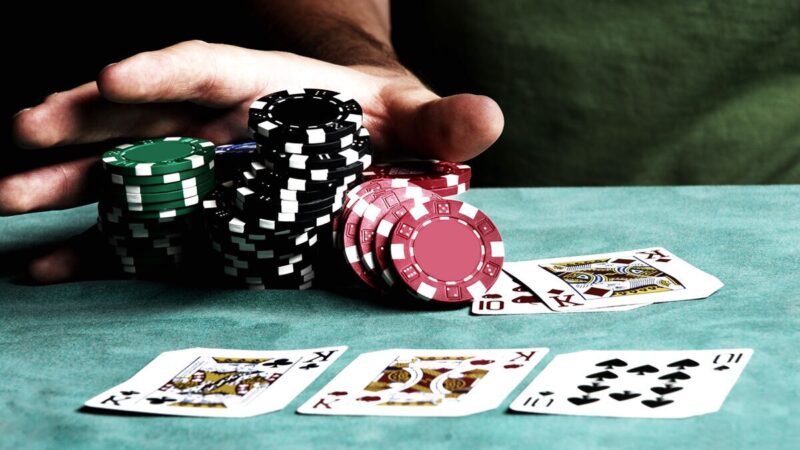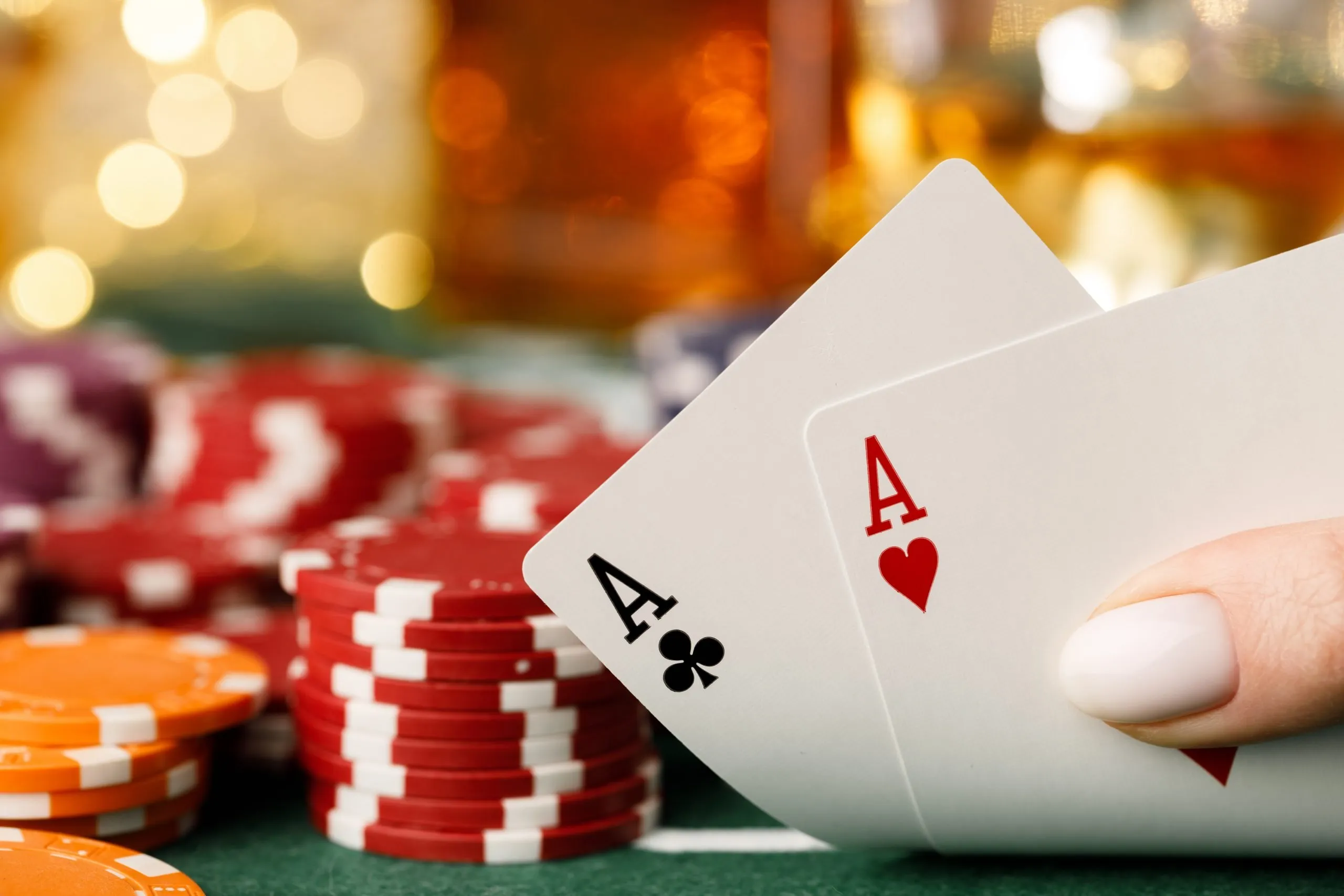Casino gambling, a popular pastime around the world, is often regarded as a blend of skill and luck. However, the role of luck in these games is a fascinating and complex subject. Unlike skill-based games, where players can often influence the outcome through strategy and practice, luck-based games offer a different kind of allure and challenge.
Understanding Luck in Gambling

Luck, in the context of casino gambling, refers to the randomness and unpredictability of outcomes. Games of chance, such as slot machines, dice games, roulette, and, are governed by random number generators or physical devices that produce results independent of any player action.
This inherent randomness is a key aspect that attracts players to these games, offering the thrilling possibility of winning against the odds. Explore our wide range of games and embrace the thrill of testing your luck against the odds at Gamblemaniacs.
Probability and Odds
The mathematical underpinning of casino games is probability. Each game has specific odds, which dictate the likelihood of winning or losing. For instance, the odds of hitting a particular number in roulette or a winning combination in slots are calculable.
These odds are designed to ensure a house edge, meaning the casino has a statistical advantage over the player in the long run. Understanding these odds is crucial for gamblers to make informed decisions.
The Illusion of Control

One intriguing aspect of gambling is the illusion of control. Players often believe they can influence the outcome of a luck-based game through rituals, strategies, or superstitions. While entertaining, these beliefs do not alter the random nature of the games. The illusion of control is a psychological phenomenon that keeps many players engaged and hopeful.
The Impact of Luck on Player Psychology
Luck in gambling also has a profound impact on player psychology. The unpredictability and the thrill of the unknown can lead to a range of emotions, from exhilaration to frustration. This emotional rollercoaster is often what keeps players coming back. The occasional big win reinforces the belief in luck and can lead to a false sense of skill or control.
Managing Luck and Gambling Responsibly
Understanding and accepting the role of luck is key to gambling responsibly. It’s important for players to recognize that outcomes are random and beyond their control. Setting limits, gambling for entertainment rather than income, and being aware of the signs of problem gambling are all critical aspects of responsible gambling.
The Psychology of Winning and Losing

The experience of winning and losing in gambling is intrinsically linked to the concept of luck. Winning often brings a sense of euphoria and validation, reinforcing the belief in one’s luck or good fortune.
Conversely, losing can lead to feelings of frustration and the desire to chase losses, often attributed to bad luck. This cycle can be emotionally taxing and highlights the importance of maintaining a balanced perspective on the outcomes of luck-based games.
Strategies in Luck-Based Games
While luck dominates the outcome of many casino games, there are strategies that players can adopt to manage their play. These strategies typically focus on bankroll management, choosing games with better odds, and understanding the rules thoroughly.
For instance, in games like blackjack, while luck determines the cards you receive, there is an element of skill in deciding how to play them. In slot machines, choosing machines with higher payout percentages can slightly improve winning chances.
However, it’s crucial to remember that these strategies do not guarantee wins but aim to enhance the overall gambling experience.
The Cultural and Social Aspect of Luck in Gambling
Luck in gambling is not just a mathematical concept but also a cultural and social one. Different cultures have various beliefs and superstitions about luck, which often translate into gambling practices.
For instance, certain numbers or colors might be considered lucky in one culture and avoided in another. These cultural beliefs add a rich layer to the gambling experience, influencing player behavior and expectations.
The Evolution of Casino Games and Luck
The evolution of casino games over time also sheds light on the role of luck. Traditional games have transformed and adapted to new formats, especially with the advent of online casinos.
These changes often involve tweaking the rules or odds, which can affect the role of luck. For instance, digital slot machines can offer a different kind of randomness compared to their mechanical counterparts. This evolution reflects the industry’s response to player preferences and technological advancements.
Luck Versus Skill in Professional Gambling
The debate between luck and skill extends to professional gambling. While games predominantly ruled by luck offer limited scope for professional play, some games with elements of skill, like poker, have a professional circuit.
In these environments, players’ strategy, psychological skills, and experience play a significant role. However, the element of luck can never be entirely eliminated, even in skill-based games.
Future Perspectives on Luck in Gambling

Looking to the future, the role of luck in gambling is likely to continue evolving with technological advancements and changing player attitudes. Developments in virtual reality, artificial intelligence, and algorithm-based gaming could introduce new dimensions to the concept of luck in gambling. These advancements might offer more immersive and interactive gaming experiences while continuing to challenge our understanding of luck and randomness.
Adapting to the Unpredictable Nature of Luck
Embracing the unpredictable nature of luck is essential in the gambling world. Players must recognize that luck’s whimsical character is beyond control, fostering a healthy approach to gambling.
By doing so, gamblers can enjoy the thrill and excitement that comes with each game, while remaining grounded in the reality that every outcome is a blend of chance and random fortune.
End Note
In summary, luck is the heartbeat of casino gambling. It brings excitement, unpredictability, and a unique psychological experience to players. While the influence of luck in gambling is undeniable, understanding its role is crucial for responsible and enjoyable gaming.
As the gambling landscape continues to evolve, the interplay of luck, skill, and technology will remain a captivating aspect of this ever-popular pastime.
Related Posts:
- Exploring the Nature of Pokies: Chance or Strategy –…
- Money Management in Gambling: Tips for Playing…
- The Dark Side of Gambling: Understanding the Dangers…
- Online Pokies Unveiled: Are They a Game of Skill or…
- What Role Does Freight Audit Play in Logistics? Tips…
- Unveiling the Biggest of All-Time Instagram Controversies














